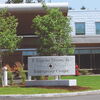Campus calculus | Enrollment gains mean higher tuition at Maine community colleges
In late April, the trustees of MCCS voted to increase tuition 8.8% and make cuts to both staff and programs in order to close a $3.2 million budget shortfall expected next year. Those moves are necessary, the trustees said, in part because of the rising number of students on the system's seven campuses. "I know a lot of people had that question: 'How can enrollment be up so significantly and yet they're talking about a tuition hike?'" says John Fitzsimmons, president of MCCS. "All I can say is that it's the nature of running a public institution."
The problem, says Fitzsimmons, is that as a public institution MCCS relies on state subsidies to fund its operations. Tuition, which is kept low to help attract low-income and non-traditional college students such as laid-off workers, only covers 26% of the MCCS's estimated $100 million operating budget. But the state's contribution, in the form of a biannual budget appropriation, hasn't been growing as fast as has enrollment. This year, MCCS asked for a six percent annual increase in its appropriation in the next two-year budget. The Legislature approved a 2.58% increase, for a total appropriation of $42.5 million for each of the next two years.
Facing that gap, MCCS, like any business, looked to boosting revenues and cutting costs to make up the difference. But when an institution's mission is to provide affordable education and train future workers for technical industries ranging from construction to health care, talk of increasing tuition and cutting programs is especially controversial, says Fitzsimmons. He and others see this year's budget issues as growing pains related to the community colleges' 2003 transition from a technical college system ˆ and the type of issue the state will continue to face as it refines a role for MCCS within an overall higher education strategy.
Of course, MCCS isn't the only state-funded operation forced to make do with less than expected this year. With the state facing a $600 million-$700 million budget gap in the 2006-2007 fiscal year, nearly every agency, department or institution saw its appropriation cut or increased at a lower rate than expected. State agencies also were limited to a 2.58% appropriations increase because of a growth cap put in place as part of the budget passed in 2003, says Rebecca Wyke, comissioner of the Department of Administrative and Financial Services.
But to help the system deal with its enrollment growth, MCCS was one of the few state agencies to even receive the 2.58% increase, says Wyke. Apart from the increase for K-12 education mandated by a citizens' referedum passed last year, all other state agencies averaged a 1.9% increase, she says. "When you compare agency to agency, the community college system has fared extremely well, given the budget situation," says Wyke.
Still, as a result of that appropriation MCCS tuition will increase next year from $68 to $74 per credit hour, which means full-time students will pay $2,200 for the full academic year ˆ $180 more than last year. In addition, MCCS is looking across its system to find several positions and programs to cut in order to balance the budget. Fitzsimmons anticipates cutting 35 jobs, which he expects to announce in mid-May.
Room at the inn?
Fitzsimmons credits the transition to a community college system with attracting more students to the campuses. But as enrollment has grown, so have the schools' costs ˆ ranging from hiring adjunct faculty to adding administrative and support positions such as admissions officers and academic counselors. And like every employer in Maine, MCCS also is dealing with higher energy and health insurance costs (Fitzsimmons expects the latter to increase 6.5% this year).
Those cost increases coincided with a six-year tuition freeze at MCCS, intended to keep the schools' tuition affordable. Between 1998 and 2004, MCCS tuition dropped from second most expensive in the country to around seventh.
This year, however, that tuition freeze may have made MCCS especially vulnerable to receiving a lower appropriation than requested, says Rep. Joe Brannigan (D-Portland), chairman of the Appropriations Committee. "I know they're very proud of [the tuition freeze], but others around the state are hurting too," says Brannigan. "Maybe they would have been better off increasing tuition just a little in the past as part of a strategy for filling in funding during difficult times."
Though Fitzsimmons says the decision to raise tuition was difficult, equally hard may be the cost-cutting efforts still pending. Forced to reduce some programs, MCCS will most likely cut from the technical and occupational courses, which tend to be more expensive to run due to special equipment and space needs, according to Fitzsimmons.
But those changes worry members of Maine's business community who rely on MCCS to deliver trained workers such as plumbers, electricians, pipefitters and welders. To observers such as Alan Burton, vice president of human resources, safety and health for Pittsfield-based Cianbro Corp., the effect of this year's budget shortfall confirms his prediction that the shift from a technical to a community college system would result in a decrease in technical training programs. "We're starting to see what we predicted would happen because education funding is being squeezed. They're going to maintain programs that cost less, and in their opinion are easier to run," says Burton. "We don't think that's the right thing for a rural economy like Maine's, where skills are just as important as academic knowledge."
Fitzsimmons contends enrollment is up in all categories in the two years since the shift. Technical and occupational programs have grown 18% in the past two years, and still enroll 75% of students, he says. Over the long term, though, he is concerned about the potential impact of the state's finances on MCCS's ability to continue to meet high demand. "The good news is, Maine people have gotten the message that college is important and they're pouring in," says Fitzsimmons. "The bad news is, we may be coming to a point where there won't be room at the inn."
Read more










Comments